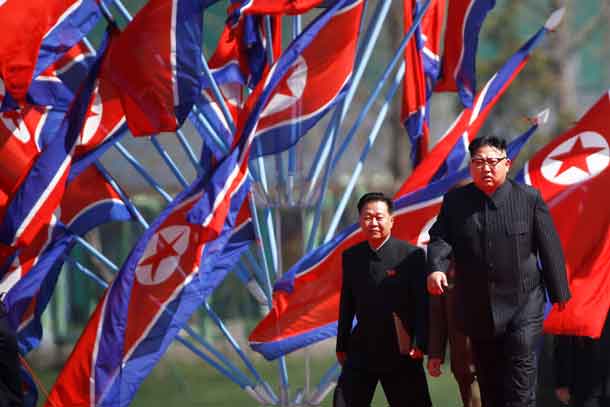

“The conditions were unspeakable. We were worked like animals.”
By Emma Batha
LONDON – (Thomson Reuters Foundation) – After arriving in Britain, North Korean defector Jihyun Park tried to forget the horrors of slavery and forced labour that had led her to seek refuge in a strange land until her son surprised her with a question.
“He asked me, ‘Mummy, why did you abandon me?’. I cried. I didn’t think he had remembered,” she said.
“But later I realised that this was not just my son’s question; it’s a question for all North Korean children separated from their families. And that’s why I tell my story.”
Park, 49, who works for advocacy group the European Alliance for Human Rights in North Korea, now lives in a quiet market town in the north of England, but she grew up in North Hamgyong Province in North Korea, the world’s most secretive state.
In the 1990s famine killed hundreds of thousands there.
“My father urged me to leave – it was his dying wish,” said Park, who will speak about slavery at the Thomson Reuters Foundation’s annual Trust Conference on Wednesday.
The young maths teacher found a broker who promised a good job in neighbouring China but instead she was sold as a wife to an alcoholic farmer for 5,000 yuan ($750).
“He said I’ve paid for you so you must work. I spent six years as his slave,” Park said.
“It was not marriage, it was assault. He was a gambling addict and drank. He hit me and violated me all the time.”
Park worked up to 16 hours a day, ate only rice and salted vegetables, and had to sit separately from the family.
Although there were other North Korean “wives” in the area they were not allowed to meet. After a year she gave birth to a baby son, Chol, who became the centre of her world.
LABOUR CAMP
Chol was five when his mother was arrested and deported to North Korea where she was sent to a labour camp.
“I didn’t get to say goodbye to my son,” she said.
Activists believe thousands of North Korean women are in hiding in China. Those sent back to the totalitarian state risk incarceration, forced labour and even execution.
Rights groups estimate 80,000 to 120,000 North Koreans are in labour camps.
“The conditions were unspeakable,” Park said. “We were worked like animals.”
The prisoners farmed mountainous terrain from dawn to dusk, pulling ox-carts laden with soil. They worked barefoot despite the stony ground. If they stopped they were beaten.
“At night we were locked up with two buckets to use as toilets. The smell was awful. There were head lice and body lice everywhere. There were 50 women to a room,” she said.
After three months she developed gangrene and the guards released her because they did not want her dying in the camp.
But Park slowly recovered – although she still walks with a limp – and arranged to be trafficked back to China where she found her son badly malnourished and filthy.
While in hiding, Park fell in love with another defector whose own son had died in the famine. The couple, who now have two more children, were granted asylum in Britain in 2008.
Chol, who had never been to school before arriving in Britain, is at university studying finance while Park is taking a degree in human rights law.
Although family life has brought her great joy, Park is still haunted by nightmares, not knowing if her brother is still alive after being deported from China to North Korea.
“Every night I have horrible dreams about being repatriated to North Korea and working in a labour camp,” she said. “Sometimes I see my father and my brother in my dreams and cry and cry.
“I have found freedom and happiness in Britain … but there are still so many people separated from their families being tortured inside North Korea.”
($1 = 6.6372 Chinese yuan renminbi)
(Editing by Belinda Goldsmith; Credit the Thomson Reuters Foundation)






